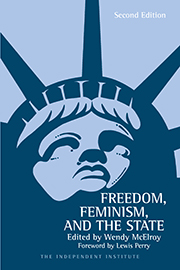H.R.4720-S.2266 is known as the Abby Honold Act. It is named after a University of Minnesota student who was raped and mutilated in 2014.
Introduced in December 2017 by Senators Amy Klobuchar (D-MN) and John Cornyn (R-TX), the Act would amend the Violence Against Women Act (VAWA). It would require the Department of Justice to award grants to law enforcement agencies “to improve the handling of crimes ... by incorporating a trauma-informed approach into the initial response to and investigation of such crimes.” The trauma-informed response is called Forensic Experiential Trauma Interview (FETI). It significantly departs from standard police procedure.
Traditionally, police procedure is evidence-driven and unbiased; it is conducted with professionalism and a detached respect toward all. The process is meant to elicit facts and to express basic principles of justice, such as due process for an accused. The reality often falls short.
By all accounts, Honold’s rape case was handled badly. She described her in-hospital interview with police: “I didn’t get a lot of information out. I kind of froze.” The detective reportedly became “frustrated” when she “remembered details out of order” because he could do nothing with the jumbled information provided.
Then, a nurse trained in FETI questioned Honold, and she was more successful. As the Virginia Department of Criminal Justice Services explains, FETI “was developed to properly interview the more primitive portions of the brain” in which memories of rape are allegedly stored. Memories are accessed by asking open-ended and sensory-focused questions about the assault, such as “what do you remember smelling?” Although the Abby Honold Act does not define the term, avoiding “victim retraumatization” is FETI’s purpose.
Competing Methods
FETI does not supplement standard police procedures; it replaces them because the two are incompatible.
Standard police procedure is called the Reid method. It has three steps: factual analysis, interviewing, and interrogation.
- Factual analysis eliminates suspects and develops leads.
- Interviewing is a non-accusatory dialogue with accusers, suspects, and witnesses to elicit investigative and behavioral information. The interview has nine well-defined stages.
- Interrogation involves an accusatory barrage, in which the investigator claims to know the person is guilty and angles for a confession.
The Reid method assembles facts and evidence, without bias toward the accuser or the accused. The neutral approach accomplishes two important goals. First, the investigator can objectively elicit and evaluate information without emotional involvement. Second, an accuser is taken seriously without denying due process to an accused. Only when there is reason to believe a person is lying or guilty does the approach become confrontational.
FETI transforms the interview stage of investigation. The manual, “FETI Forensic Experiential Trauma Interview,” opens, “The real key to FETI is not the exact questions, but the approach: sympathetic, believing, victim-centered.” The investigator moves closer to being a therapist. He uses “principles and techniques developed for forensic child interviews (open-ended non-leading questions, soft interview room and empathy).”
The manual offers advice on how to engage a traumatized person’s primitive brain. The interviewer assures the interviewee that she is believed, for example, and he does not “dive into crime details, unless victim wants to do so.” When she describes the crime, he is to realize that inconsistencies are normal, not a sign of lying. Moreover, when an account is disjointed, the interviewer translates “it into a report that makes sense.” Traditionally, an investigator’s job is to get a straight-forward narrative that determines whether criminal charges are appropriate. He does not fill in the blanks.
FETI refers to an accuser as “the victim,” which damages a basic principle of justice known as the presumption of innocence for an accused. The presumption now shifts to the “victim,” who is automatically assumed to be telling the truth. The burden of proof shifts to the accused.
Before radically changing police standards and basic principles of justice, a question must be asked. Does FETI even work?
FETI advocates point to its widespread use in the military as proof of legitimacy. But the U.S. Air Force explicitly rejected FETI, stating, “Given the lack of empirical evidence on FETI’s effectiveness, and the large number of investigative, professional and scientific concerns regarding FETI and FETI training, the Air Force does not consider FETI as a viable option for investigative interviewing. We believe it would be inappropriate and irresponsible to discontinue the use of a robust, well-studied, effective, and empirically-validated interviewing method...in favor of an interviewing method that is loosely-constructed, is based on flawed science, makes unfounded claims about its effectiveness, and has never once been tested, studied, researched or validated.”
Conclusion
Honold’s experience with the police may have been wretched, but the officer may have also been incompetent. And the nurse acted as a therapist, not as an investigator. Why blur the two roles, and make a systemic change in police procedure based on anecdotal and unclear reports?
FETI advocates give a clear answer: to obtain more convictions, because the Reid Method apparently classifies too many accusations as “unfounded” or “unsubstantiated.”
One standard by which H.R.4720 intends to evaluate FETI, if implemented, is by its “effectiveness” on “prosecutorial practices and outcomes”; that is, by the increase in charges and convictions. Wendy Wilson, victim advocate at the Ocala [Florida] Sexual Assault Center is typical in her belief that “arrest and conviction rates will increase once FETI is implemented.” This presumes that current rates are inadequately low.
Law enforcement’s handling of sexual assault is deeply flawed. Years of unopened rape kits in police storage attest to that. But FETI is not the answer. Sexual assault needs to be taken more seriously within the existing framework.










